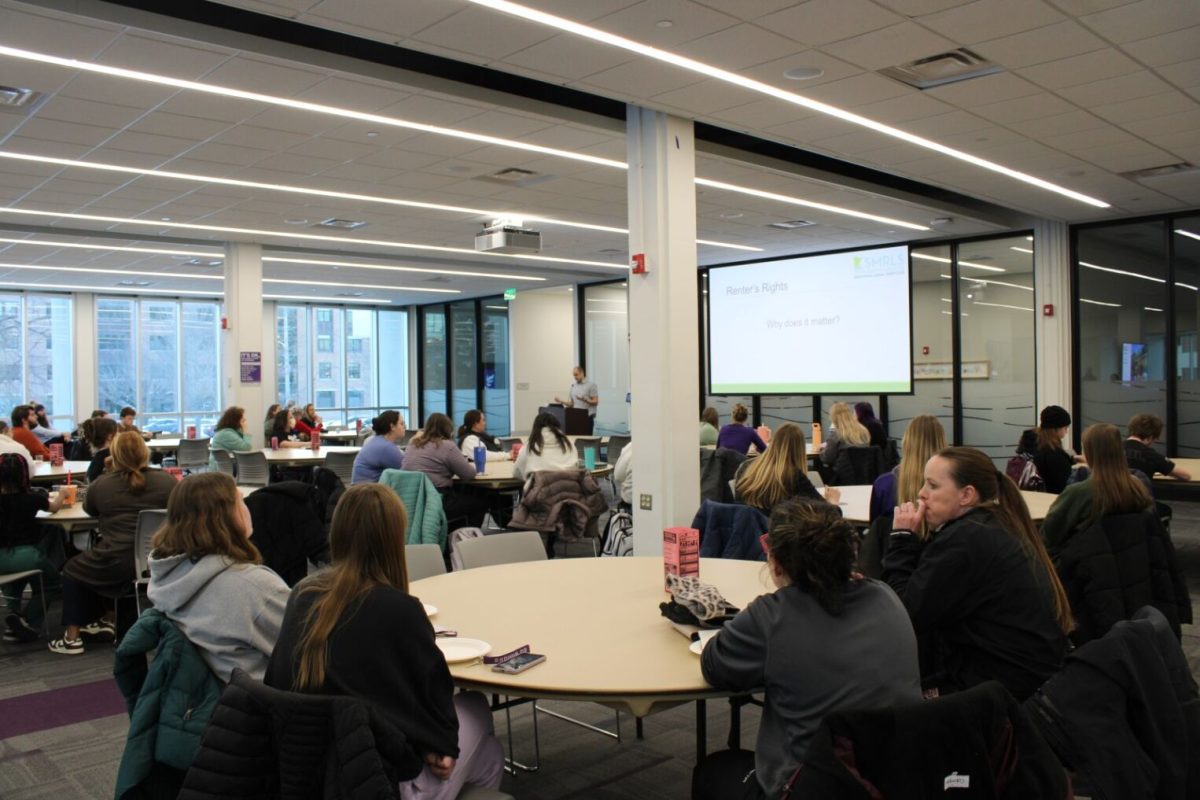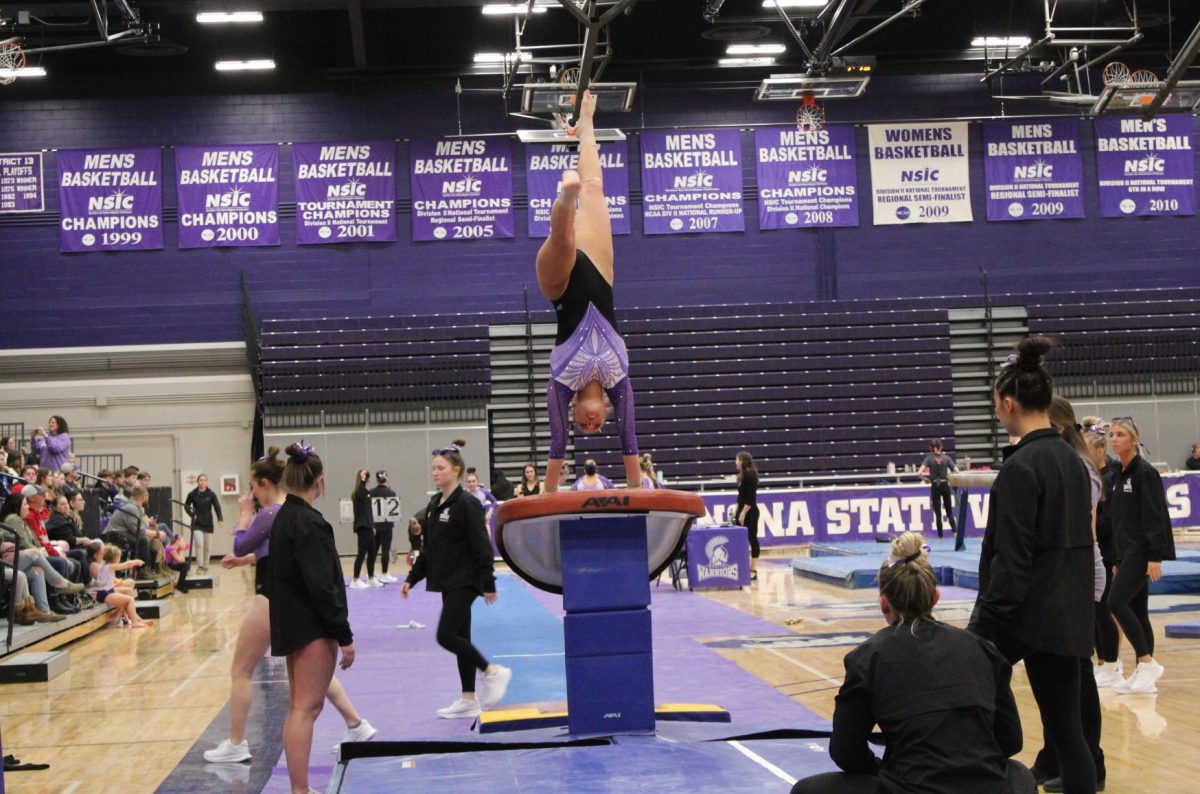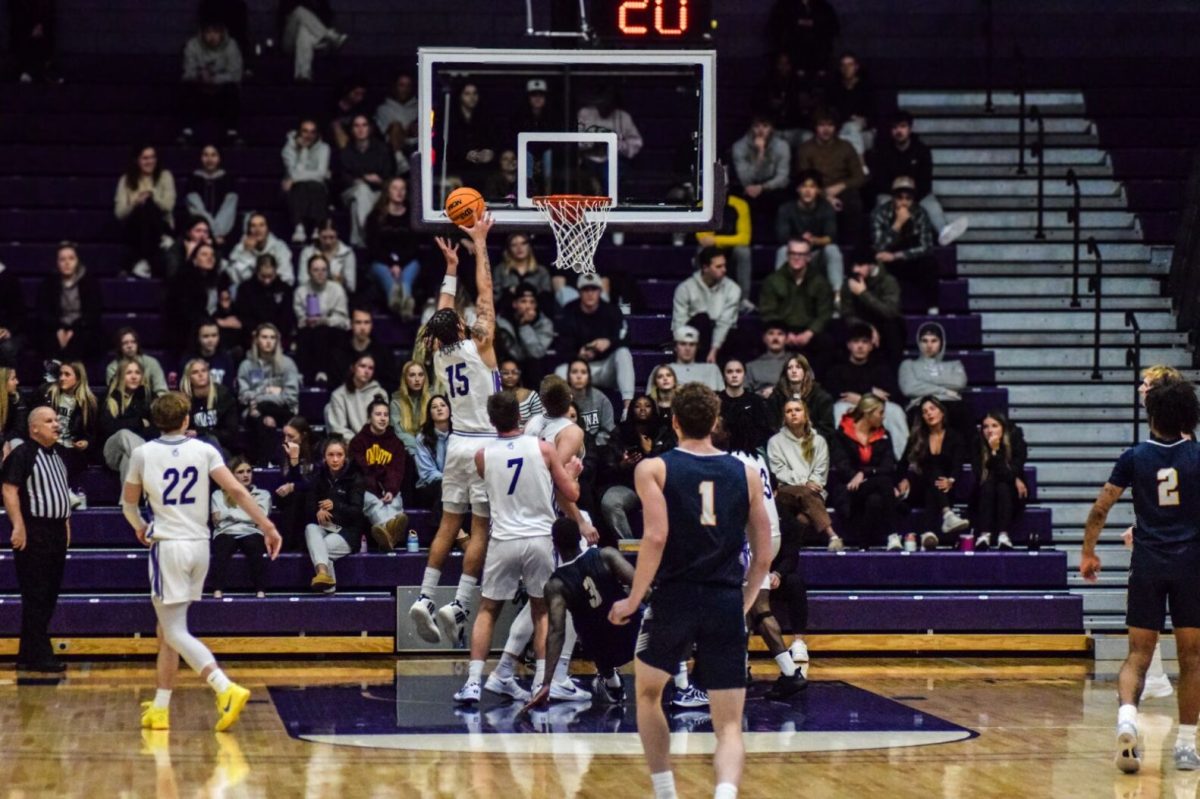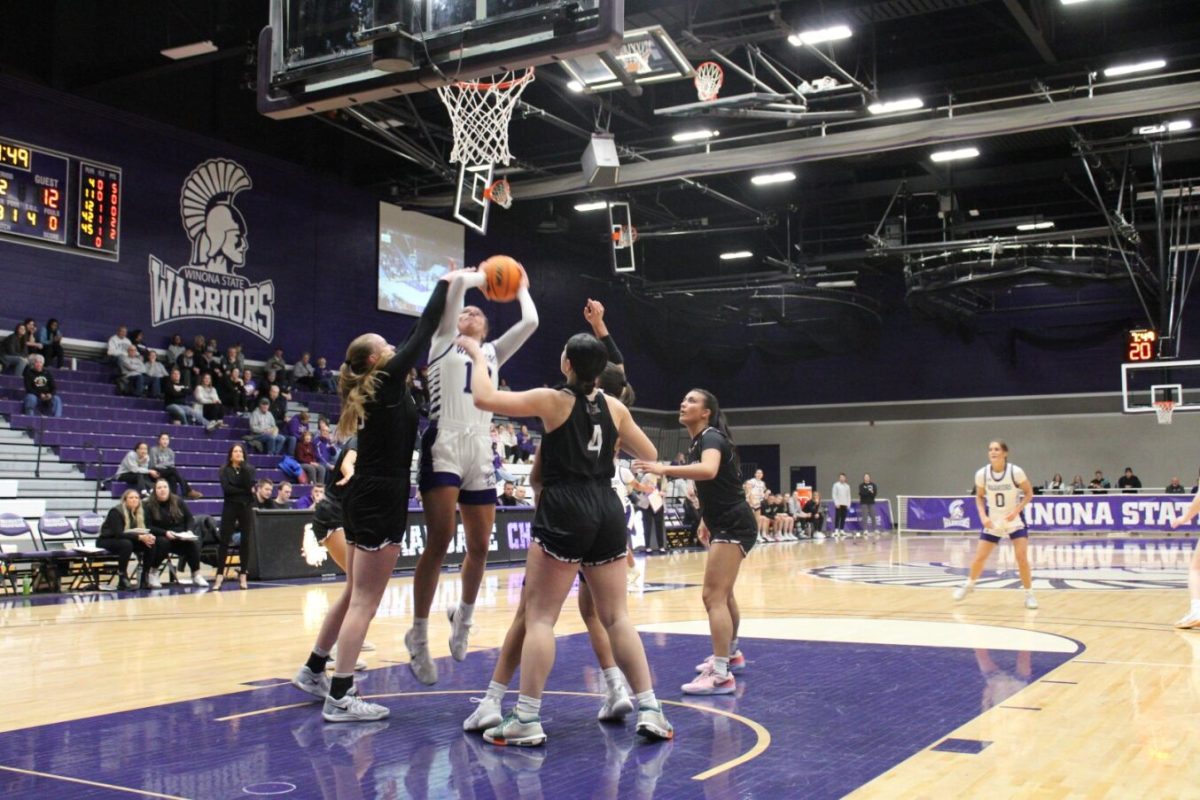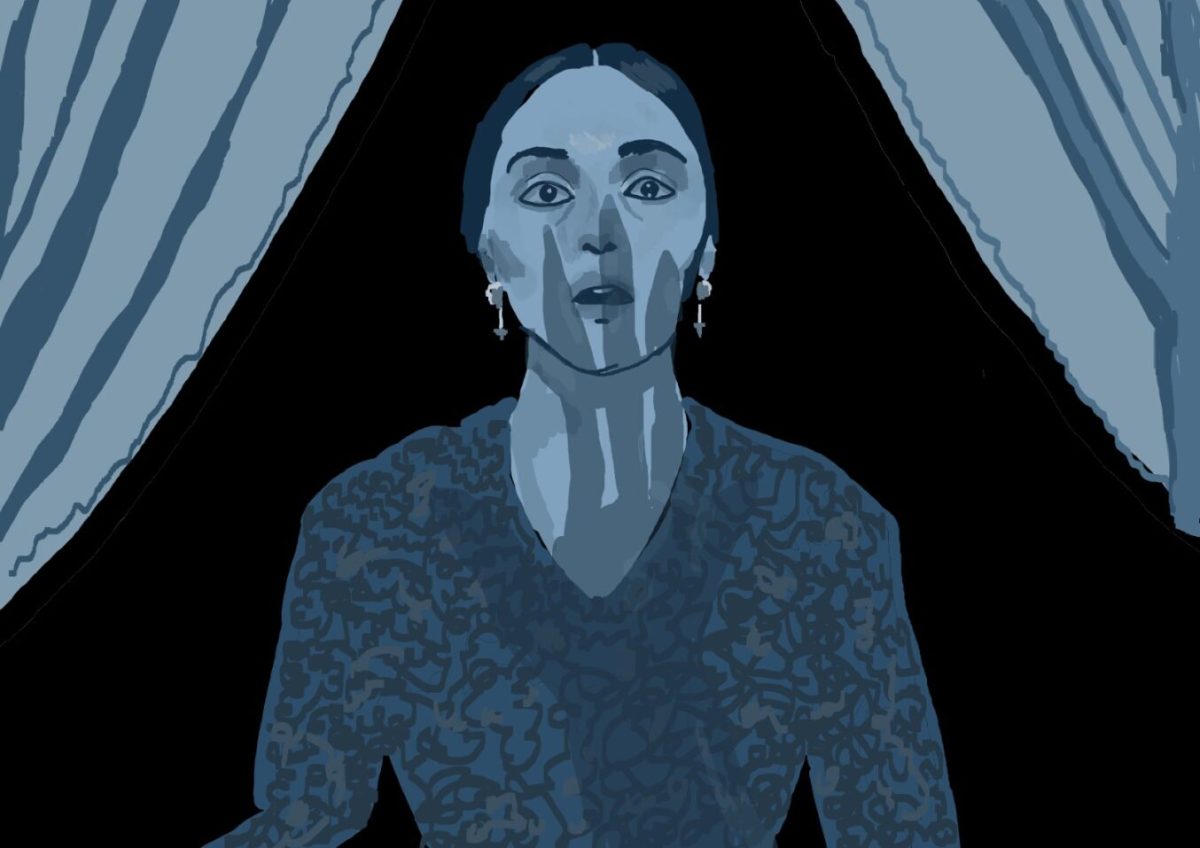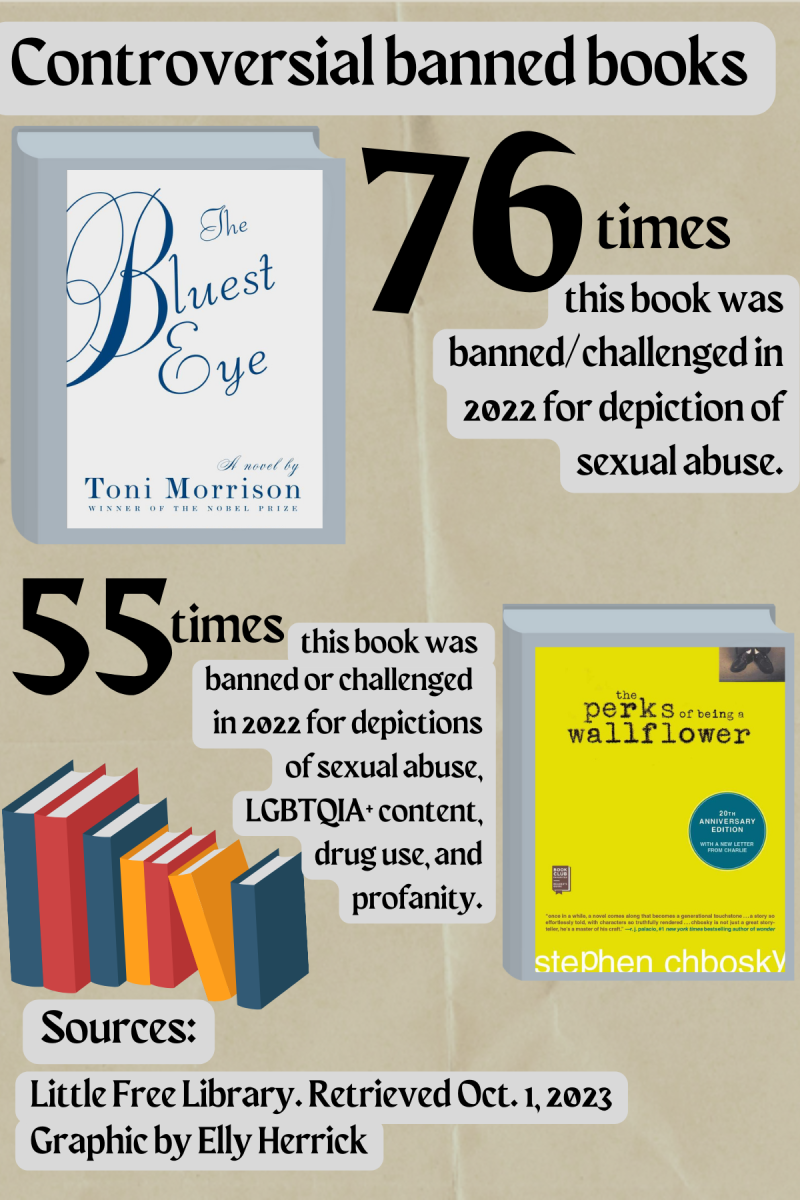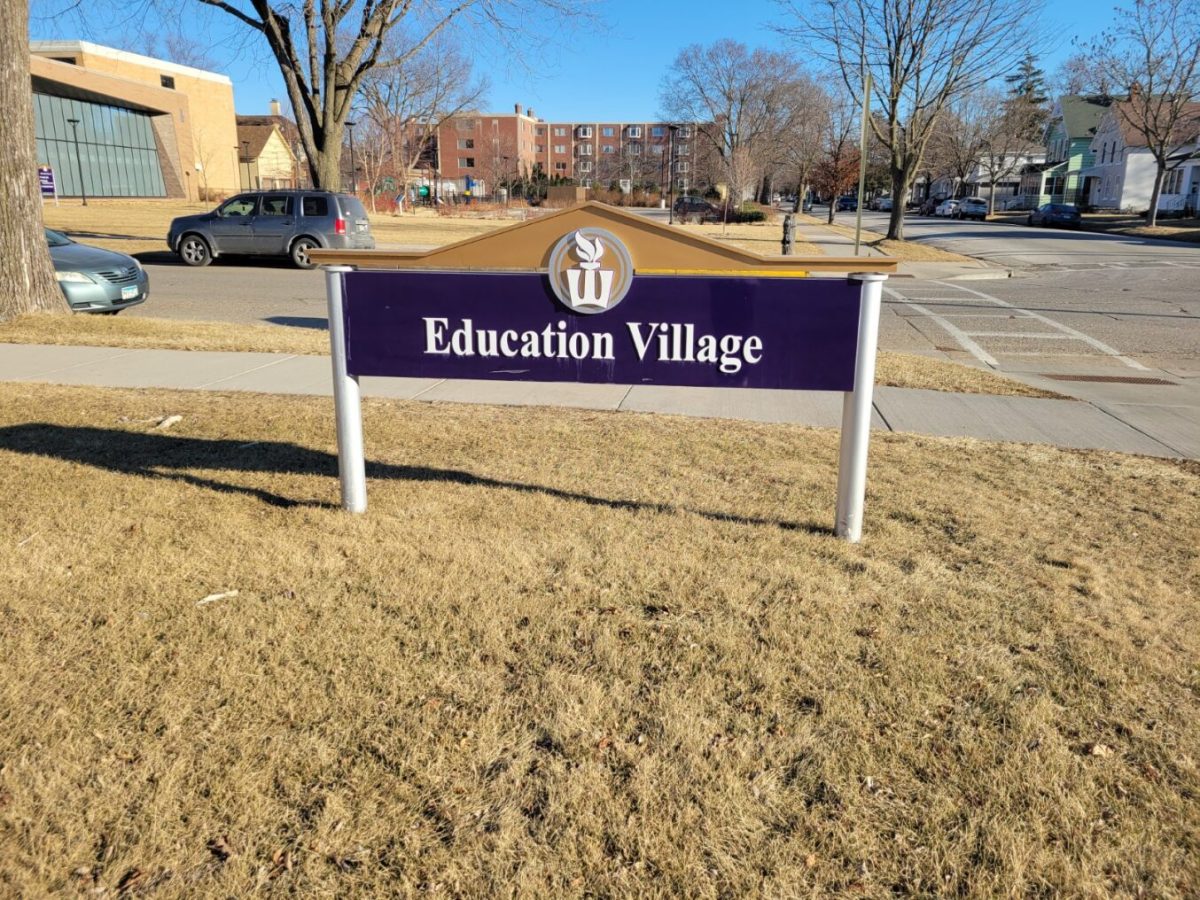The Perks of Being a Wallflower by Stephen Chbosky, Gender Queer by Maia Kobabe, The Bluest Eye by Toni Morrison all have one thing in common: They have all been challenged and banned more than once all over the United States. These well-known and well-loved books, along with many others, also have a population who find them morally wrong for people to consume.
According to a pamphlet found in Winona State University (WSU)’s library, in 2022, The Office for Intellectual Freedom (OIF) found that book challenges and attempted bans have reached their highest number since they started recording the data 20 years ago. 2022 was the highest year on record for book challenges. It significantly exceeded the number of challenges from the previous high in 2021 (Darrell Krueger Library).
The challenges and book bans happened due to the attempts of conservative organizations. Many of the banned books have been targeting the work of people of color and LGBTQ+ people. Their works, about the experiences and struggles of marginalized groups, are being targeted as immoral or not good for society in some way.
At WSU, Banned Books Week is not just talked about, it is celebrated in the library. Even though WSU has not banned any books of their own, they stand with the American Library Association (ALA) in the efforts to curb book banning in other places. Many of these bans take place in schools and public libraries at the request of parents wanting to choose what their child reads.
Aurora Jacobson, Reference and Liaison Librarian at WSU, claimed that while it is a parent’s personal decision about what their kids should and should not read, it should not have to affect other kids.
“I will say personally that I don’t know that I parent in the same way that everybody else parents, and a lot of the book banning is happening in public and school libraries within the idea that it’s a parent’s right to choose what your child reads,” Jacobson said. “While I agree with that, I don’t think it’s your right to then question what I might want my child to read.”
The removal of certain books also takes away the freedom that comes with them. The access to information is important to many people. When people petition for a book to be banned, they are petitioning for the removal of information that could be vital. While everyone has a choice of what to read and what not to read, it is a personal decision that should not affect others.
Kendall Larson, the Digital Collections Liaison and Librarian, who is also the department chair for Kruger Library, said that the freedom that comes with books should be valued by all people.
“The American Library Association theme this year for banned books week is ‘Let Freedom Read’ and it really is your choice,” Larson said. “You have the freedom to read and have the freedom for yourself to choose to read or not to read certain things, and I should say that it should not affect the collections that libraries provide. You have that choice and freedom to decide.”
Certain people and groups have been employing scarce tactics, going as far as leaving bomb threats toward libraries who carry certain books. With all the book banning and challenges now, it is safe to assume that there could be lasting effects of them felt in the future.
“It’s the removal of information, the removal of facts, removal of perspectives that are essential to our society which is a diverse and educated society and that is dangerous,” Larson said.
“A lot of the books that are on that list are people challenging the idea that everyone wants to see themselves reflected in books,” Jacobson said. “We have not always been good about collecting things that allow people to see themselves reflected in books and we have gotten better at that and now we are having the [book] challenges come back. That is an important part: Everyone should see themselves reflected in the materials that the library owns.”
As a diverse society, it is important for everyone to see themselves reflected within the pages of a book. It is a simple thing that can be taken for granted. People petitioning for book bans make up a small percentage of the United States population, but they produce large impacts. Banning books bans education and the hope that society can be well rounded and diverse in their experiences with different ideas and cultures.
Due to Winona State University being an institution for education, according to the ALA books are less likely to be challenged. This is because they are used to providing a variety of perspectives on many topics, all in the hope of educating people.
“As an academic library we collect things that are around and support the curriculum.” Kendall Larson, the Department Chair of Kruger Library said. “Our purpose is to support education and provide a variety of different viewpoints to help folks read those viewpoints and try to understand them. So having those sources is really important for a library such as a university.”


